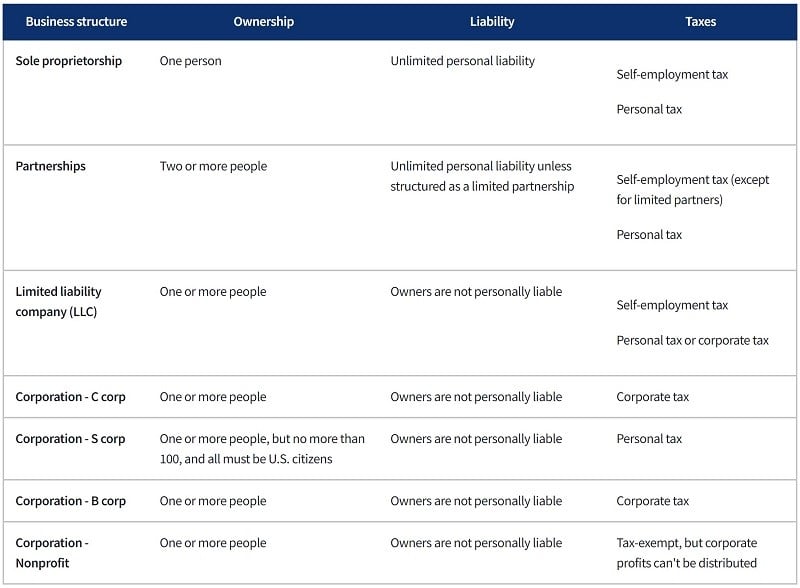One of the most important aspects of running a business is choosing the right legal structure. We’ve found that many of our coworking space members have their businesses registered as a limited liability company (LLC) due to its potential advantages over other corporate structures. Our own company, Pacific Workplaces, currently uses 20 LLCs, one per location, to protect our investors from hidden liability, while making the structure very tax efficient and keeping costs low. In this post, our purpose is to share the top three reasons LLCs tend to be the entity of choice for small to medium-sized businesses. Keep in mind that we are not legal experts and our purpose is not to provide legal or tax counsel, only to share the reasons that drove us, and many others like us, to choose LLC as primary legal entities.
What is an LLC?
A limited liability company (LLC) is a business structure that varies from state to state. Its members abide by an operating agreement to define specific roles. Many view it as a hybrid structure between a partnership and a corporation that allows owners and investors to limit their personal liabilities. For tax purposes, profits and losses are passed through the business and are reported at the individual level, therefore the LLC itself doesn’t pay corporate taxes.
Personal Liability Protection
Simply put, LLCs keep your business life and personal life separate. Unless fraud or gross negligence is involved, shareholders don’t have more than their capital at risk. For instance, should an individual or other entity file a lawsuit, as an LLC, you and your members are protected from personal liability for any debts that the business incurs. Limited liability protects personal assets (i.e. car, house, savings accounts, etc.) in the event your business is sued. Any lawsuit would be against your company – and not you personally. Sole proprietorships and partnerships cannot offer this kind of personal liability protection.
Tax Benefits for LLCs
The default tax structure for LLCs is “pass-through taxation.” This means any profits and losses generated by the business are not taxed on the federal level and are instead passed through to the owner or each member’s individual tax return, and are taxed at the individual’s personal tax rate. This prevents LLC members from double taxation, which differs from corporations that have to pay a corporate income tax in addition to owners also being taxed on any dividends received.
The above example is a general tax classification for an LLC, but the entity can take many different forms. This is where things can get slightly complicated (you can thank the IRS for that!). The table below compares the general traits of these business structures related to liability and taxes, but this should only be used as a guideline as things can vary between states.
To learn more about the different tax structures in relation to LLCs and how these rules relate to your specific business, start here and also consider talking with a CPA or a business tax specialist.

Source: https://www.sba.gov/business-guide/launch-your-business/choose-business-structure
Low Cost
The cost of registering your business as an LLC depends on what state you’re setting it up in. Generally, the filing fee ranges from $40 to $500 depending on the state, and you don’t need an attorney to start an LLC, which saves a significant amount of money. LLCs usually don’t require as much paperwork in comparison to creating a corporation, and generally involve less burdensome record-keeping requirements. Sole proprietorships are low-cost initially, but they don’t offer protection of personal assets as we discussed earlier.
Pro tip: When it comes time to register your LLC, look into establishing a virtual business address or virtual mail plan. A virtual address is an affordable business solution offering a physical address you can utilize to register your business, which you’ll need to provide as part of your articles of organization.
There are many nuances involved when deciding the best way to legally structure your business, so it’s important to understand the pros and cons of all the options out there. LLCs are a popular choice since they allow for the protection of personal assets, tax benefits, and cost less to set up. Ultimately, though, make sure you think through your specific business goals and seek advice from a professional to ensure you’re choosing the structure that makes the most sense for your company.
If you’re a startup or small business looking for affordable officing solutions, check out our Virtual Office Plans.

